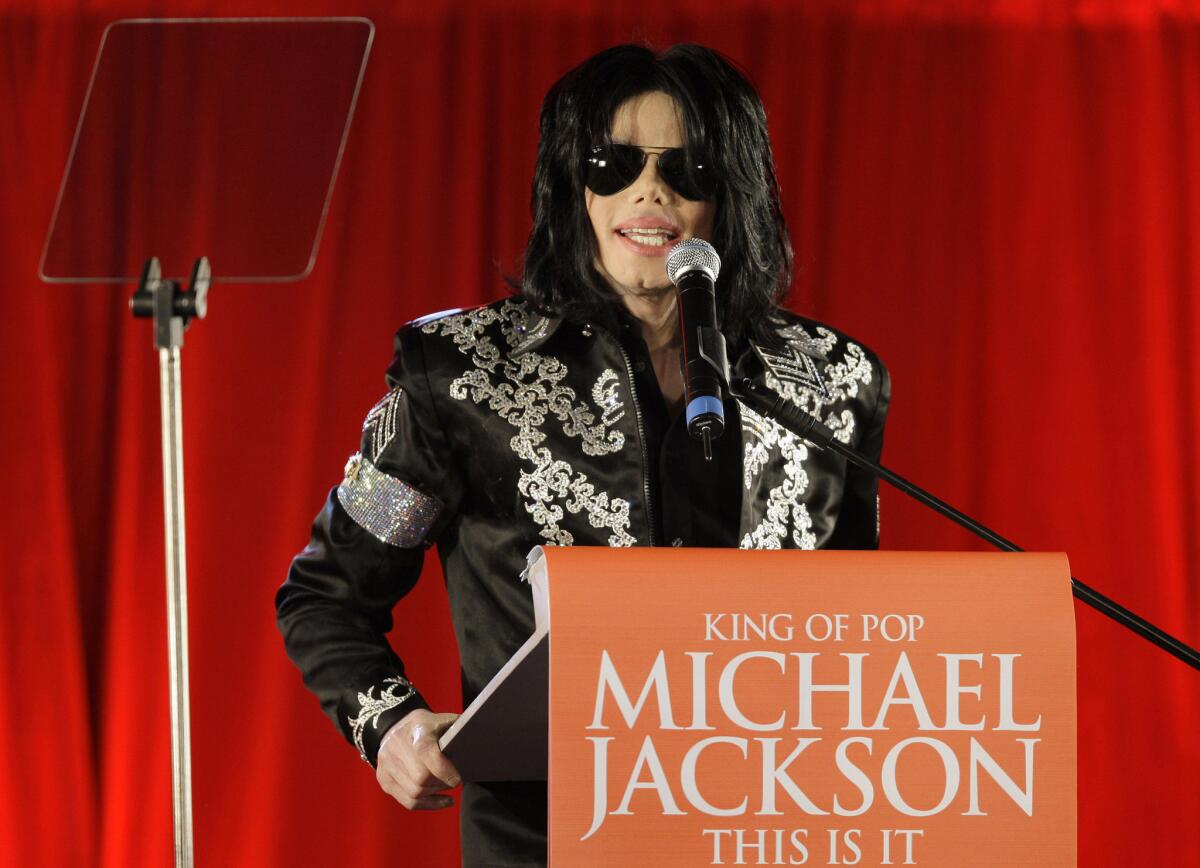Michael Jackson verdict and 7 other tragic pop music figures

Michael Jackson in March 2009.
Wednesday’s verdict absolving concert promoter AEG Live of responsibility for Michael Jackson’s untimely death in 2009 while preparing for what was to be a major career comeback raises the question of whether the spotlight will ever return to the superstar’s musical legacy, one that yielded, among many other achievements, “Thriller,” the biggest selling album by a solo artist in history.
Will Jackson’s legacy be inextricably intertwined with the sad and often tawdry details of his personal life after his star went into decline, and the seemingly endless legal battles related to his death? Or will Jackson ultimately be remembered more for “Thriller” and “Billie Jean” instead of courtroom dramas and plastic surgery?
MICHAEL JACKSON: Complete trial coverage
Here’s a look at how seven other pop music superstars who died young have fared over time.
Billie Holiday: The preeminent jazz singer channeled personal demons into recordings of visceral pain and transcendent beauty while battling heroin addiction, which was all too common among jazz musicians of her era. The substance abuse is still a crucial facet of her life story, but the music she left behind is why we remain interested in her.
Jimi Hendrix: The rock guitar god reinvented the instrument to such an extent that admirers — even peers as celebrated as Eric Clapton and Jeff Beck — still express their awe of what he did before he died in 1970 of asphyxiation. His drug use both fueled and hampered his musical innovations, but more than four decades after his death he’s remembered far more for his instrumental wizardry than his substance abuse.
Jim Morrison: The Doors’ singer and main lyricist battled drug and alcohol addiction before his death of heart failure at 27 in 1971. He was dogged at the end of his life by a Florida conviction for indecent exposure and public intoxication — a debacle that at least in part prompted his move from the U.S. to Paris — and decades after he died, his name was central to legal wranglings among his former bandmates over use of the group’s music for commercial purposes. Today he’s widely regarded as perhaps the quintessential antihero of the ‘60s rock scene for the dark edge his words brought to the band’s music. It also helped tilt the world’s view of Morrison that he and the band were lionized by filmmaker Oliver Stone, both in Stone’s prominent placement of Doors’ music in his 1986 film about the Vietnam War, “Platoon,” as well as the 1991 biopic “The Doors.”
PHOTOS: Notable deaths of 2013
John Lennon: The “smart Beatle” had his downs along with many ups before Mark David Chapman gunned him down outside his apartment in New York in 1980, at age 40. He went through a much publicized, endlessly analyzed “lost weekend” of debauchery in Los Angeles during his separation from Yoko Ono in the mid-1970s, but they reconciled and had a son, Sean Ono Lennon, who reignited much of Lennon’s zest for life before his death. Still, Lennon’s reputation rests with the songs he created with the Beatles and during his solo years, and his endearing wit, rather than his all-too-human transgressions.
Kurt Cobain: With Nirvana, Cobain ushered in a new age of rock — grunge — in the early 1990s that brought both new vitality and a hardened punk skepticism into the mainstream with the breakthrough hit “Smells Like Teen Spirit.” Cobain, however, was unable to reconcile the pressures and demands that came with the group’s fame and fortune, and still stands as one of pop’s tragic figures for whatever demons drove him to commit suicide at age 27 in 1994.
Amy Winehouse: England’s neo-soul singer impressed audiences and critics with her vocal chops, but often appeared to be a disaster waiting to happen in terms of her off-stage life. Winehouse’s blatant refusal to seek treatment resulted in a powerful pop hit with her single “Rehab” — “They tried to make be go to rehab, but I said ‘No, no, no’” — but ultimately brought her life and career to a screeching halt in 2011 when she overdosed. Two years later the music, thanks to additional material released posthumously, has raised her standing as a massively talented singer above the tabloid headlines she generated during her brief time in the spotlight.
Whitney Houston: Pop-R&B darling Whitney Houston really did seem to have the “Greatest Love Of All” from both fans and the music industry when she emerged in the 1980s with a magnificent set of pipes she applied to towering ballads and inviting dance-floor hits. But drug abuse plagued her life, and interrupted her career to such an extent in the years before she died in 2012 that while much of the world was shocked upon her death, many were not surprised. It’s too soon to measure how she’ll be viewed through the lens of history, but it’s unlikely that the tragic circumstances of her death will ever disappear completely.
ALSO:
Michael Jackson: The wounds, the broken heart
Amy Winehouse: Iconoclastic pop singer found dead
Whitney Houston’s drug issues resonate within the industry
Follow Randy Lewis on Twitter: @RandyLewis2
More to Read
The biggest entertainment stories
Get our big stories about Hollywood, film, television, music, arts, culture and more right in your inbox as soon as they publish.
You may occasionally receive promotional content from the Los Angeles Times.






